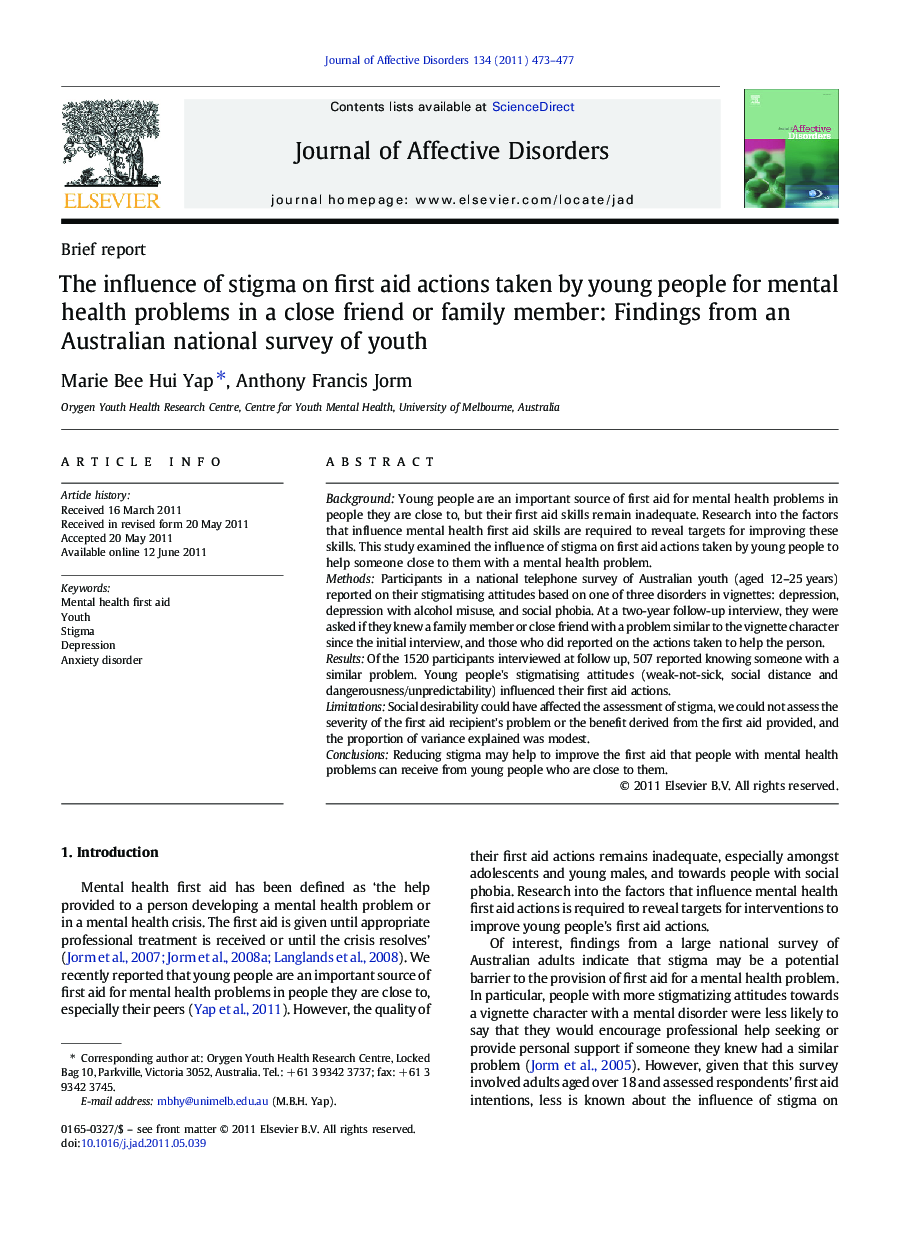| Article ID | Journal | Published Year | Pages | File Type |
|---|---|---|---|---|
| 6235230 | Journal of Affective Disorders | 2011 | 5 Pages |
BackgroundYoung people are an important source of first aid for mental health problems in people they are close to, but their first aid skills remain inadequate. Research into the factors that influence mental health first aid skills are required to reveal targets for improving these skills. This study examined the influence of stigma on first aid actions taken by young people to help someone close to them with a mental health problem.MethodsParticipants in a national telephone survey of Australian youth (aged 12-25Â years) reported on their stigmatising attitudes based on one of three disorders in vignettes: depression, depression with alcohol misuse, and social phobia. At a two-year follow-up interview, they were asked if they knew a family member or close friend with a problem similar to the vignette character since the initial interview, and those who did reported on the actions taken to help the person.ResultsOf the 1520 participants interviewed at follow up, 507 reported knowing someone with a similar problem. Young people's stigmatising attitudes (weak-not-sick, social distance and dangerousness/unpredictability) influenced their first aid actions.LimitationsSocial desirability could have affected the assessment of stigma, we could not assess the severity of the first aid recipient's problem or the benefit derived from the first aid provided, and the proportion of variance explained was modest.ConclusionsReducing stigma may help to improve the first aid that people with mental health problems can receive from young people who are close to them.
